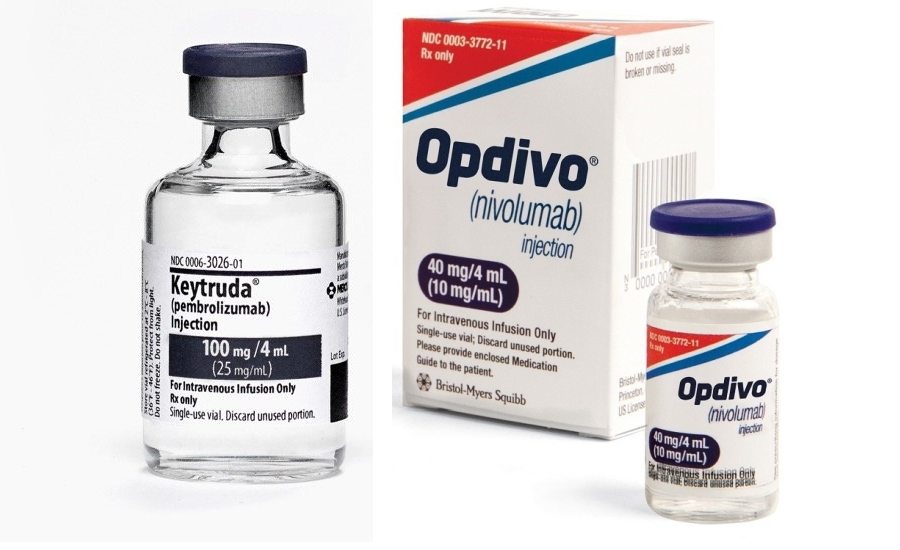
The immuno-oncology data showdown between team Merck and team Bristol Myers Squibb in kidney cancer appears to have a winner in the eyes of at least one analyst. But that doesn’t mean the other party has lost the fight.
After last week’s American Society of Clinical Oncology’s Genitourinary Cancers Symposium, Merck and Eisai’s Keytruda-Lenvima combo is the “clear choice” to elicit a rapid, durable response in most patients with previously untreated renal cell carcinoma, SVB Leerink analyst Daina Graybosch said in a Tuesday note.
It’s a hard-fought win, with challengers including Keytruda’s pairing with Pfizer’s tyrosine kinase inhibitor (TKI) Inlyta, Bristol Myers’ dual immunotherapy Opdivo and Yervoy, as well as Opdivo’s TKI combo with Exelixis’ Cabometyx. Graybosch reached the conclusion based on separate trials pitting those regimens against Pfizer’s standard treatment Sutent.
In the Keynote-581 study, the Keytruda-Lenvima therapy triggered a response in 71% of patients, clearly higher than the 60% posted by Keytruda-Inlyta in its own Keynote-426 trial, which earned second place among the four regimens in terms of overall response rate.
So far, at roughly two years of follow-up, the four combos have exhibited very similar abilities to help patients live longer, having pared down the risk of death by 32% to 34% across their own trials. But Graybosch pointed to Keytruda and Lenvima’s best-in-class performance on complete tumor clearance and best duration of response among I-O/TKI options as “early signals” of a strong overall survival.
After talking to two industry experts, Graybosch identified two additional chance for Merck to win over the market with “effective commercial and medical execution.”
RELATED: ASCO GU: Merck, Eisai turn up the heat in kidney cancer with Keytruda-Lenvima survival data
First off, Graybosch’s interpretation that Keytruda-Lenvima holds the best potential for longer overall survival was not shared by both the experts she consulted. But Graybosch argued that the fact the theory received some support leaves room for the combo—and I-O/TKIs in general—to cut into the roughly 38% market share held by Opdivo and Yervoy in front-line kidney cancer.
While one expert expressed confidence in the Yervoy regimen and preferred to use it upfront for low- and intermediate-risk patients, the other expert said physicians simply like the I-O duo because of its first-to-market advantage.
At ASCO GU, Bristol Myers and Exelixis also pointed up health-related quality of life benefits for the Opdivo-Cabometyx combo from the CheckMate-9ER trial. The combo is also linked to fewer side effect events and lower treatment discontinuation rates compared with the two Keytruda combos in their respective trials.
But the two experts argued that comparing these data across trials may be misleading because Keynote-581 started with a higher dose of Lenvima than what doctors usually use, while CheckMate-9ER started with a lower-than-typical dose for Cabometyx. Plus, despite a higher discontinuation rate, Keytruda enjoyed a median duration of treatment about a month longer than Opdivo’s in these two trials, Graybosch noted.
The experts think the real-world I-O/TKI tolerability will be similar, saying that “ultimately, patients will gravitate to a dose tolerable for them,” according to Graybosch.
Does that mean the Keytruda-Lenvima holds a clear and safe leading spot in front-line kidney cancer? Not necessarily, Graybosch said, pointing to three uncertainties that could shift the market down the line.
First, the SVB Leerink analyst said she’s still waiting for more risk subgroup data, which could eventually divide the market. She also questioned whether doctors might save the better TKIs for later lines of therapy.
The next wave of combinations could pose a bigger threat. One of the experts was excited about Bristol’s Opdivo-Yervoy-Cabometyx triplet now under study in the COSMIC-313 trial; that test bears a primary end date in November. Bristol Myers also has a partnership with Nektar Therapeutics on IL-2 drug bempegaldesleukin, which it’s exploring alongside Opdivo across different types of cancer, including kidney cancer, with data expected soon.
